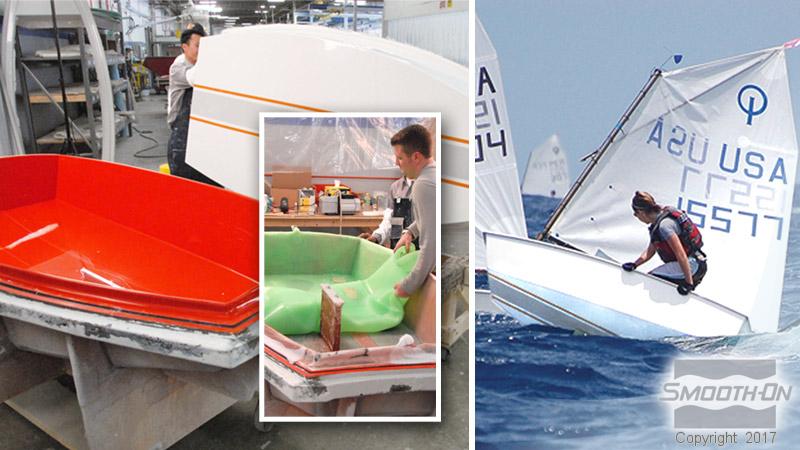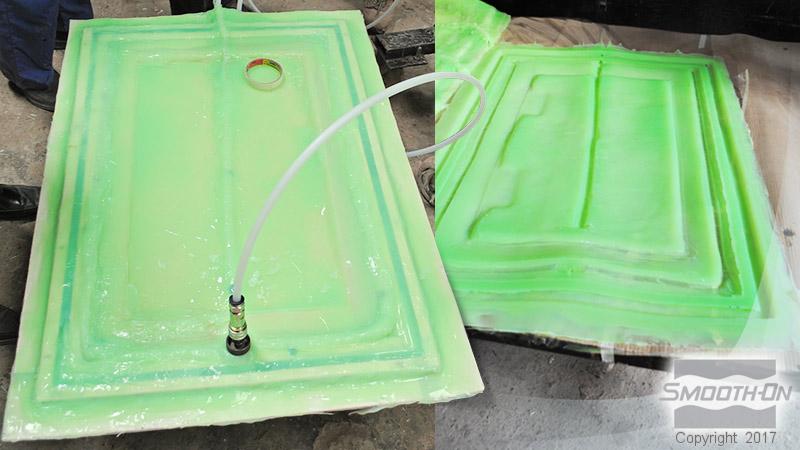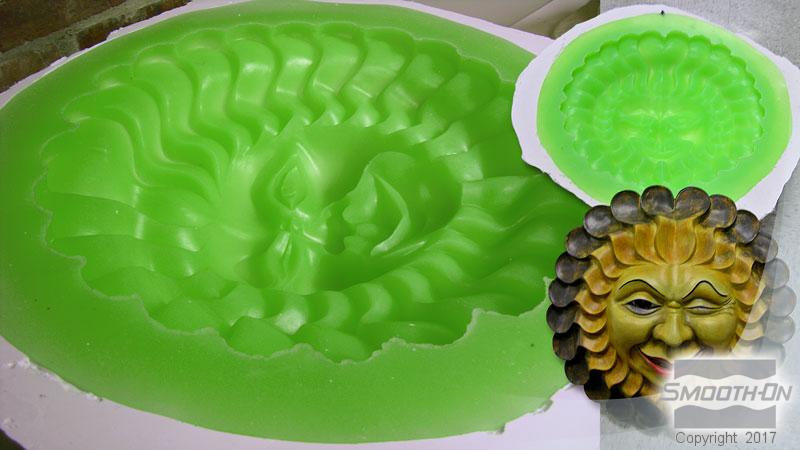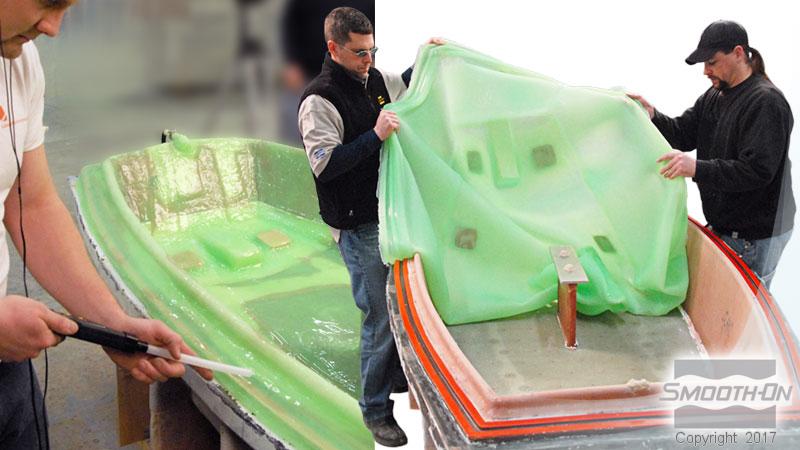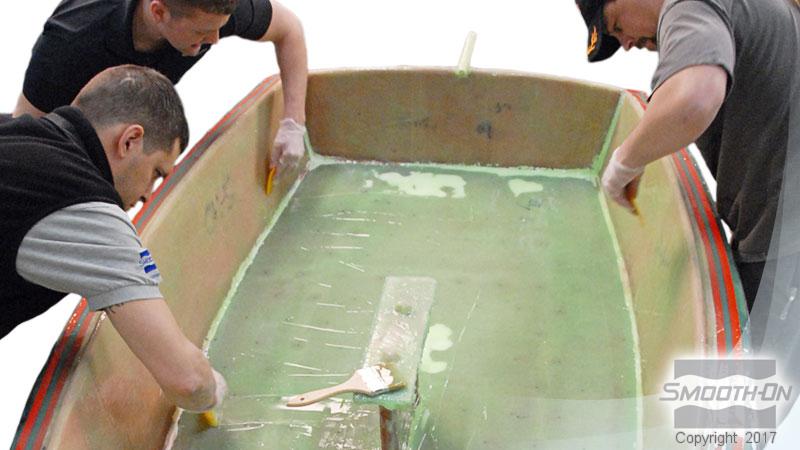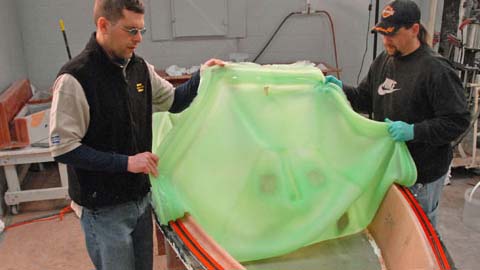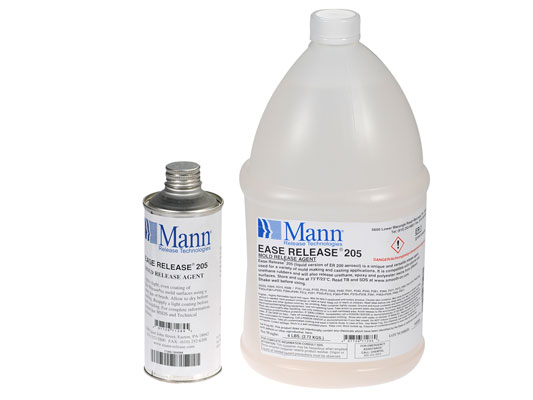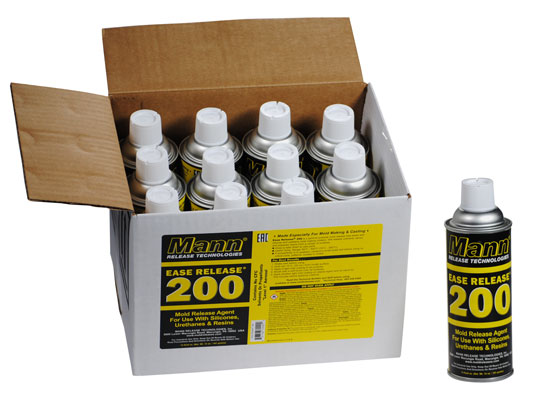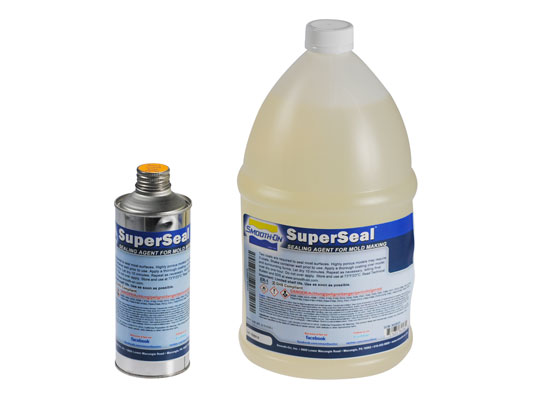EZ-Brush® Vac Bag Silicone
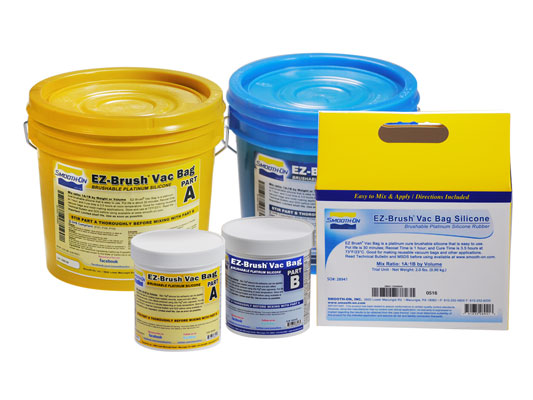
特征
操作时间为30分钟,重涂时间为1小时。硅胶固化成具有非常高的伸长率和撕裂强度的软质柔性硅胶(Shore 20A),收缩可以忽略。新制作的真空袋可在3.5小时内从模具中取出,立即用聚酯或环氧树脂系统进行生产,并可承受高达500°F / 260°C的温度。
与传统的真空袋装系统相比,EZ-Brush® Vac Bag 硅胶在提供生产预备硅胶袋时速度更快,从而节省大量时间和人力。由于硅胶袋可重复使用,长期材料成本大大降低。
说明
Because no two applications are quite the same, a small test application to determine suitability for your project is recommended if performance is in question.
Cure Inhibition - Platinum silicones are especially susceptible to cure inhibition by a variety of contaminants (such as sulfur and uncured epoxy resin) resulting in tackiness at the pattern interface or a total lack of cure. If compatibility between the rubber and the surface is a concern, a small-scale test is recommended. Apply a small amount of rubber onto a non-critical area of the pattern. Inhibition has occurred if the rubber is gummy or uncured after the recommended cure time has passed.
To prevent inhibition, a “barrier coat” of clear acrylic lacquer sprayed directly onto the pattern is usually effective. Allow to thoroughly dry.
Note: Even with a sealer, platinum silicones will not work with modeling clays containing heavy amounts of sulfur. Do a small scale test for compatibility before using on your project.
If there is any question about the effectiveness of a sealer/release agent combination, a small-scale test should be made on an identical surface for trial.
Safety - Use in a properly ventilated area. Wear safety glasses, long sleeves and rubber gloves to minimize contamination risk. Wear vinyl gloves only. Latex gloves will inhibit the cure of the rubber.
MEASURING & MIXING - Before you begin, pre-mix Part B thoroughly. After dispensing required amounts of Parts A and B into mixing container (1A:1B by volume or weight), mix thoroughly by hand or turbine mixer (available at your local Smooth-On distributor). Material should be mixed for 2-3 minutes making sure that you scrape the sides and bottom of the mixing container several times. After mixing parts A and B, vacuum degassing is recommended to eliminate any entrapped air. Vacuum material for 2-3 minutes (29 inches of mercury), making sure that you leave enough room in container for product volume expansion.
Coverage Rate: Vacuum Bagging – At 3/16” (4.8 mm), the material will cover 137.1 sq. in/lb of material (0.2 sq. m/kg)
- One gallon unit (16 lbs. / 7.26 kg) will cover a 15.2 square foot (1.41 sq. meters) area at a thickness of 3/16” (4.8 mm).
- One 5 gallon unit (80 lbs. / 36.29 kg) will cover a 76.2 square foot (7.05 sq. meters) area at a thickness of 3/16” (4.8 mm).
Applying The Rubber - This product must be applied in layers. 3 to 4 very thin layers (approximately 0.06” / 1.5mm per layer) are adequate to build a minimum final thickness of 3/16” (4.8 mm). Start at one end of tool and apply a thin, uniform layer across all surfaces. Let the first coat cure for 1 hour at room temperature or when it becomes “tacky” before adding the next coat. Repeat until the necessary thickness is achieved. Go back to original starting point and apply 2nd layer to entire tool. Repeat until a minimum 3/16” (4.8 mm) thickness is attained.
Apply material to undercuts and recesses first. Have an extra pair of hands to brush rubber as it is applied. Do not allow rubber to fully cure between layers, as delaminating may result.
Curing - Allow the rubber to cure for at least 3.5 hours at room temperature (73° F/23° C) before demolding. Do not cure rubber where temperature is less than 65° F /18° C.
Performance & Storage - Fully cured bags are tough, durable and will perform if properly used and stored. The physical life of the bags depends on how you use it (materials cast, frequency, etc.). Using a release agent may be necessary in some cases. Contact Smooth-On to discuss your particular application. Before storing, the bag should be cleaned with a mild solvent, such as isopropyl alcohol, and wiped fully dry. Bags should be stored on the tool whenever possible. Store bags on a level surface in a cool, dry environment. Do not stack bags; expose them to moisture or UV light.
